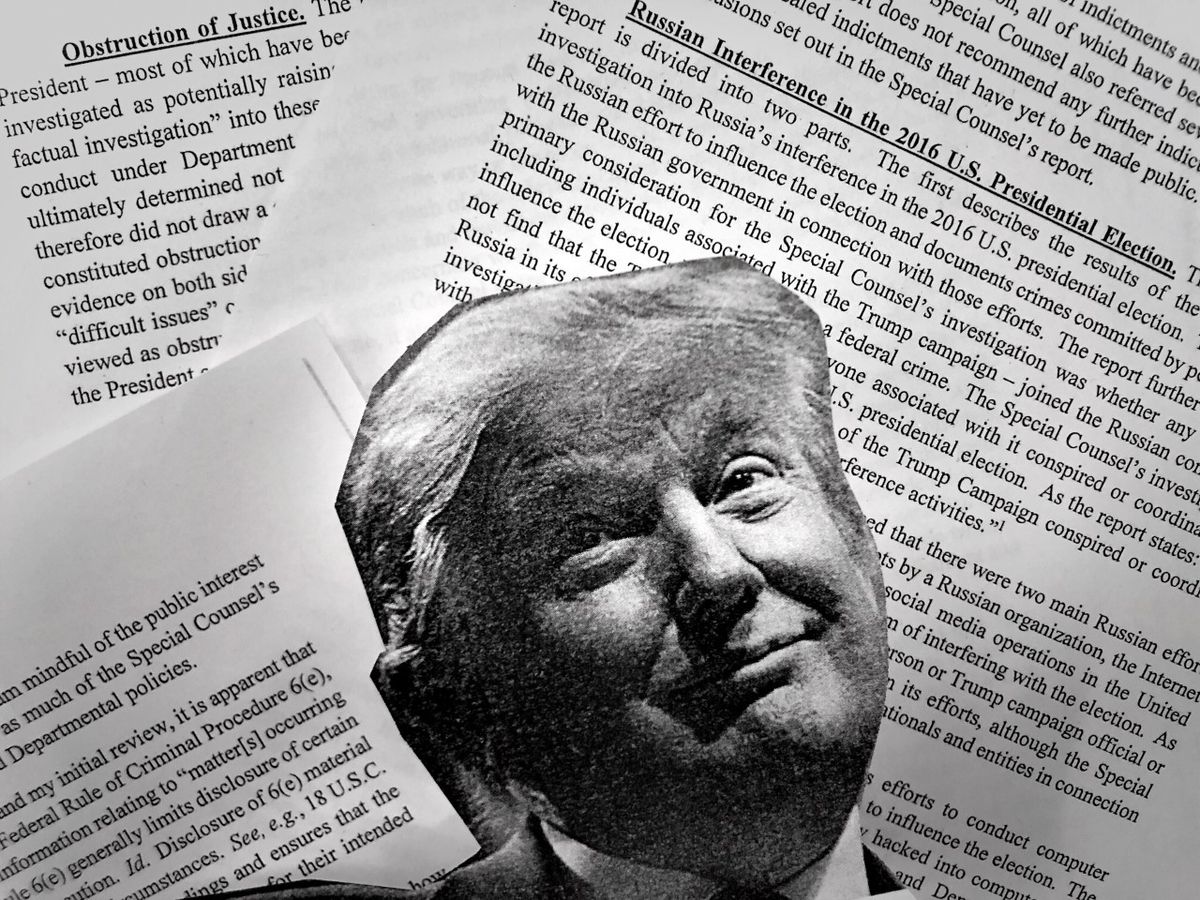After 22 months, 34 indictments, and half a million articles about Special Prosecutor Robert Mueller's III's investigation into possible Trump campaign collusion with Russia, the headline judgment came down to just four pages on a Sunday afternoon.
In a letter of that length summarizing the investigation, US Attorney General William Barr said Mueller's team had not established coordination between the Trump campaign and the Russian government ahead of the 2016 election. That's not quite an exoneration for President Trump, but it certainly plays well politically: "No Collusion!"
Barr also wrote that the Special Prosecutor had declined to issue judgment on whether the president tried to criminally obstruct the investigation.
For a top notch analysis of the letter's legal implications, we refer you to this piece by the legal eagles of Lawfare, here. From our perspective, the politics look like this:
Trump won. Yes, Trump and his family still face ongoing investigations of their businesses, personal finances, and non-profit organizations. But the bottom line is: collusion was the main focus in the Mueller investigation and the political circus that surrounded it. The fact that Trump appears to have beaten that rap will, for better or worse, now overshadow all else.
Expect Trump to play the vindication card shrewdly and ceaselessly for the next 18 months as he pursues re-election. Democrats will have to decide how much further to push the "Russiagate" line of attack. They, and the American people, will certainly want to see the full report – which could contain politically damning information about Trump and his associates. But the political evaporation of the "collusion" angle makes it harder, and riskier, to try to make other stuff stick.
Institutions worked. For nearly two years, a special prosecutor investigated a sitting president – one who famously disdains institutional checks and balances – and he completed his work largely unhindered.
Score this as a big win for the rule of law at a time when Trump's unconventional presidency has raised all kinds of questions about the resilience of American institutions.
But… caveat number one: under Trump's withering attacks, the FBI's image suffered with Republican voters, while gaining with Democrats. Now that Mueller's findings (seemingly) went the GOP's way, will that change? A situation in which law enforcement comes to be seen constantly politicized by one or the other of America's political tribes is a bad thing in the long run.
And… caveat number two: there's already lots of hand-wringing about whether "the media" (a vague term we don't like much) has lost credibility for overhyping "Russiagate." A free, functional, and broadly trusted media is an indispensable democratic institution too.
Looking ahead to 2020
Don't forget, the Mueller investigation did show – and quite definitively – that Russia deployed a social media strategy to interfere in the 2016 election with the aim of helping Trump.
There are two important things to say about that. First, the Kremlin, and others, will be eying the opportunity to meddle again in 2020 – which opens up the question: what is the US government prepared to do about the vulnerabilities of US elections to meddling and manipulation by foreign or domestic actors?
Second, people will argue forever about whether Russian meddling is what enabled President Trump to win. The truth is that we will never know. What we do know, however, is that the social polarization that put Trump in a position to contend at all in 2016 – the divides between urban and rural, liberal and conservative, and white and non-white America – haven't gone away as the US heads into the 2020 election season.
The clear signal: As 2020 approaches, domestic polarization is still a whole lot more important than foreign interference.



















